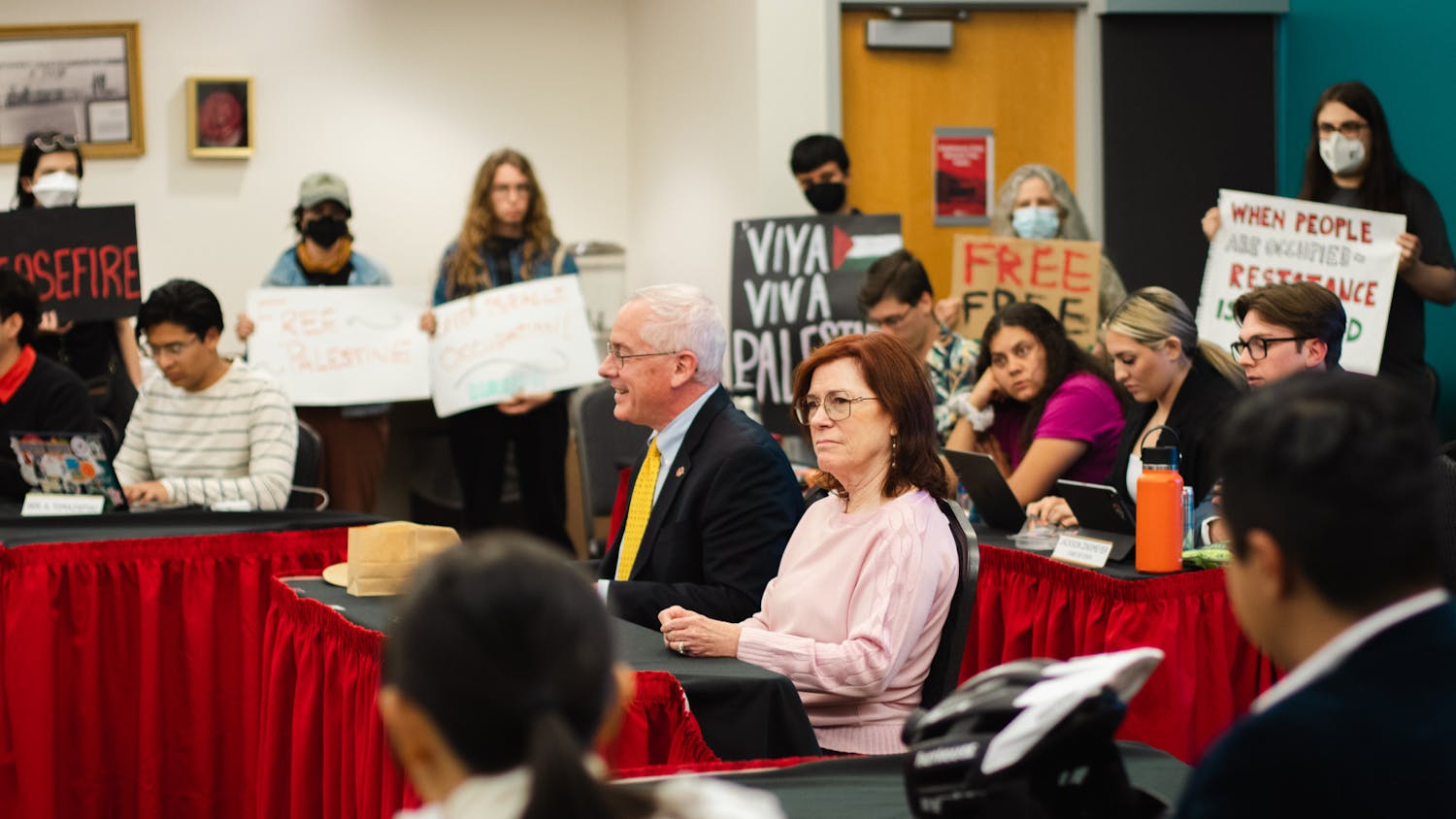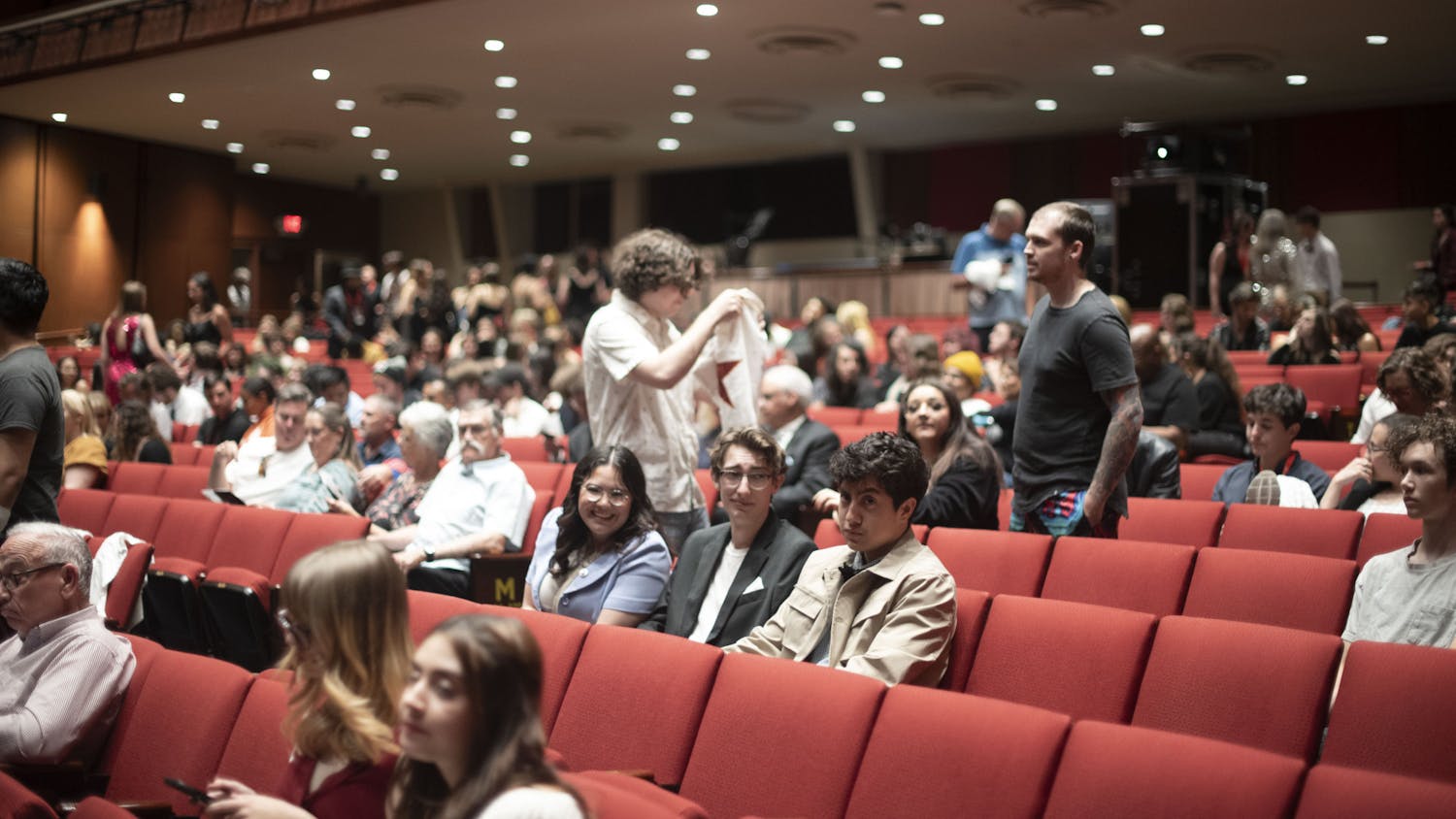opinion@dailylobo.com
I hereby declare the ‘Occupy’ movement officially dead. The popular grassroots phenomenon that captured the imagination of the country for several weeks during the fall of 2011 is long gone, and with it probably our last hope for any sort of peaceful revolution. The Occupy movement was brutally suppressed in a sweeping, nation-wide police crackdown against legal dissent. The University of New Mexico played a role in this shameful episode of American history.
Occupy Wall Street was initiated by the Canadian-based counter-culture magazine Adbusters. It was inspired by the “Arab Spring” protests from Tahrir Square in Cairo, which sparked the Egyptian revolution.
Beginning in Zuccotti Park in the financial district of New York City on September 17, 2011, the OWS protests eventually reached over 800 cities across the nation, including Los Angeles, Chicago, Seattle, Denver and Albuquerque. Demonstrations of international support sprang up in places such as London, Toronto, Madrid, Sydney and Rome. In communities around the world, millions of peace activists, veterans, students and people from all walks of life united to protest issues of inequality and economic disparity.
I supported “Occupy Albuquerque” in my column back on October 18, 2011, in a column titled “Protests promote necessary tension.” I also took part in a few of the week-long teach-ins at the SUB sponsored by Desi Brown, professor of Peace Studies at UNM. I spoke about the value of student activism for my allotted 15 minutes. It felt good to participate in a political movement I could actually believe in.
But that was prior to the forced eviction of all the protesters from UNM: part of a coordinated effort to quell the Occupy movement before it gathered too much momentum. As reported by the Daily Lobo, UNMPD — backed up by state police — showed up in full riot gear at midnight on Sunday, October 10 to inform the protesters camping in Yale Park that they would have to vacate the premises or risk arrest.
The UNM administration maintained they’d repeatedly told the protesters they were not allowed to stay on campus overnight because it was a violation of University policy. They justified their actions at the time with the excuse that the area was “unsafe.” Eventually, they claimed the campers simply had the wrong permit.
Over the next two weeks, more than a dozen cities implemented violent police tactics to evict Occupy protesters from parks and other public spaces across the country. According to confidential records obtained in 2012 by the Partnership for Civil Justice Fund through the Freedom of Information Act, the FBI treated the Occupy movement as a potential terrorist threat. In each case, the forcible evictions were coordinated with the Department of Homeland Security, the FBI or other federal police agencies. The documents prove that local police and DHS were working in tandem with big banks to target, arrest and politically undermine peaceful American citizens. The plan seems to have worked to perfection.
Negative “framing” of OWS in mainstream media also helped to counteract the movement’s broader political message and minimize its impact on the national dialogue. Framing is a form of media bias that helps to influence public opinion. Mainstream news outlets crippled the Occupy movement through their derogatory and often antagonistic reporting of events. They tended to portray the protesters as aimless, frivolous, irresponsible freeloaders. By delegitimizing popular unrest, the mainstream media prevented discussion of more comprehensive change from taking place. Unfortunately, media outlets continue to have a major effect on the general public, despite the rise of alternative news and social media.
Still, the movement was able to highlight fundamental flaws in the system by drawing attention to several key issues. PR-savvy members of Occupy came up with slogans like “Where’s my bailout?” and “We are the 99%” that remain part of public discourse today. The call for greater income equality also became an important theme thanks to OWS, and this message resonated with the broader public. Other aspects of its impact have endured as well: some banks have begun easing their foreclosure policies, and debt forgiveness has entered the discussion. None of these tiny steps were facilitated by the mainstream media, however.
Successful social movements depend on the creation of broad alliances with like-minded people who are unified by a common goal to affect positive change. Multiple alliances can work together to produce beneficial outcomes on many levels. Ultimately, however, the perceived lack of a unified voice, goal or vision — along with the democratic mandate to make all decisions by popular consensus — made it difficult for OWS to sustain any momentum in the wake of the brutal, nation-wide evictions. That was over two years ago. Chalk up another one for the police state.
As president John F. Kennedy said in 1962, “Those who make peaceful revolution impossible will make violent revolution inevitable.”
Get content from The Daily Lobo delivered to your inbox
Amen, brother.





